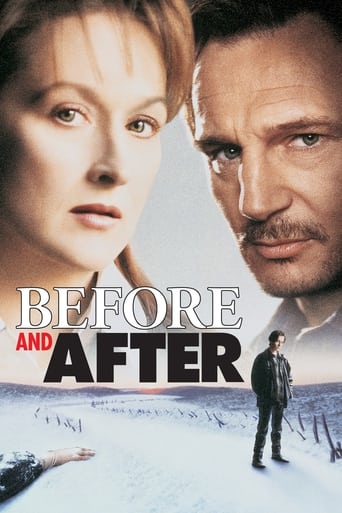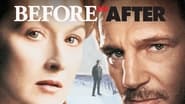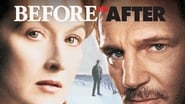Filipe Neto
In this film, a typical middle-class couple tries to cover up what they think is a homicide, after their son runs away without saying anything. Actors' work is consistent, but characters are so clichéd and annoying that it's hard to like them. Meryl Streep plays the good and naive mother, always in the shadow of her husband in a relationship that seems sexist and artificial. She is the portrait of the obedient housewife who does what the husband wants. I understand that the film is from the nineties, but even then there were other ideas about the role of women in the family. Liam Neeson is an impulsive and even violent father, whom its almost impossible to like, even though he shows that he likes his son and tries to protect him. Finally, Edward Furlong plays the teenager in revolt at who bad things happen, the idiot who dated a promiscuous girl who slept with anyone who appeared without pants in front of her. Ah, I almost forgot Alfred Molina, who played a lawyer who would be better off selling vacuum cleaners than in a courtroom. In short, it's a deep and engaging melodrama, but it makes the mistake of being totally predictable, like a TV movie.
Wizard-8
I was pleasantly surprised by this movie. I had put off watching it for a long time because I thought it would fall on standard clichés in the telling of its murder mystery. But there's a lot to like here. For starters, the performances by the lead actors are first rate. Streep and Neeson come across as real people tackling a real problem. I should also add that Alfred Molina also gives a solid performance as the defense attorney. (Though the fact he looks like idiot movie critic Michael Medved gave me a few chuckles at times.) The script gives most of its characters a fair shake. The parents are sympathetic at times, but sometimes they make decisions we disapprove of. The townspeople and police are not one-note characters, showing off more than one side.The movie unfolds at a pace that keeps us interested and informed. It's directed with an appropriate bleak look that suits the subject matter.There is one flaw with the movie, however. I thought that Edward Furlong's character was repulsive, stupid, and hateful. I don't blame Furlong for this, but his direction and his parts of the screenplay. I think a better way the movie could have gone would be to give him a mixed view, neither overly sympathetic or hateful. This would make the viewer think long and hard about him, and wonder if his fate at the end of the movie is correct or not.
sol1218
****Spoilers**** Sitting at the dinner table with his parents and little sister Jacob,Edward Furlong, finally opens up and tells the story of what happened between him and Martha Traverner, Alison Folland, since Martha was found dead in the snow outside of town. Jacob was on the run as a fugitive from justice for the a week until he was found and arrested at a friends house. Last seen with Martha as he picked her up where she worked at Jacey's Ice Cream Parlor in town Jacob was the prime suspect in her death. Now after being apprehended and let out on bail he had to get what happened to Martha off his chest and the story wasn't a pretty one, but it wasn't as bad as it could have been either. Jacob did indeed kill Martha but it was a tragic accident. Gripping story about a father and mothers love for their troubled son and how they went about to save him from being put behind bars for killing his girlfriend and how it destroyed their lives as well as, of course, the lives of the parents of the girl who was killed. Jacob's mother Carolyn Ryan, Meryl Streep, wanted only the truth about her son actions in regard to Martha's death to come out in court and felt that it would exonerate him. His father Ben Ryan, Liam Neeson, on he other hand wanted to do everything possible and even went as far as destroying evidence in order to protect him. Jacob in the end sided with his mother and wrote out a full confession which his father could not bring himself to sign. Jacob was 16 years old and needed his parents signature to make the confession legal, and in effect threw himself on the mercy of the court. Jacob didn't bother to defend his actions which his father and lawyer Penos Demeris, Alfred Molina, begged him to do. "Before and After" is a story that has no happy ending no matter how you look at it, for both the victim and the accused. Its realism makes the film more effective and believable then most movies about courtroom dramas which usually have cop-out and feel-good or surprise endings. The story is told in retrospect from Jacob's little sisters Judith's, Julia Weldon, point of view. You already see from the start of the movie that things were never the same for Julia and her family when the film started. Meryl Streep as the mother is both protective and at the same time confident of the court and jury that her son Jacob was to face in his trial. Liam Neeson as the father was just the opposite not trusting the jury to acquit his son no matter how strong the evidence was in Jacob's favor that Martha's death was an accident. Jacob went with his mothers feeling in telling the truth and leaving it up to the judge instead of going to trail. In the end Jacob and his family were left to see if he was right or wrong in that decision. Strong performances all around with a really powerful scene in the movie towards the end when Carolyn is confronted by Martha's mother Terry, Ann Magnuson, at the hospital where Carolyn works as a doctor. No matter how much Carolyn tries to tell Terry how sorry she is about what happened to her daughter Terry is totally unmoved to the point where Carolyn is overcome with tears. You couldn't blame Terry for feeling like she did, her daughter was dead and Carolyn's son, no matter what the outcome of the court will be, is alive. Those in the movie acted as if they really believed in what the story was trying to tell us: That a parent burying their child is the worse kind of tragedy imaginable, no matter what the circumstances of their child's death was. The film also brought out that those who have a son or daughter who was responsible for that death will have to, as well as their son or daughter, carry that guilt with them for the rest of their lives as well.
Wood-20
.Spoilers.There was a lot of good things about this movie. It was a compelling and interesting story right from the beginning. The acting was seemingly well played...... until the third act. What on earth happened to the direction of this film? I have not read the book, so I don't know if it has the same direction as this movie played out... but the third act did not even seem like the same movie. The acting took a nose-dive, and the melodrama began flowing freely like ipecac down the throat.From the beginning, I thought: Hey, sure, it's plausible that the Father wanted to save his son, and that these goofy things with the cover-up, and the family binding together to uphold the lie, were certainly no stretch of reason. Then we get to mom's, and Eddie's character's confession, and the whole thing is a puke-fest of gotchas and ridiculous moral claims about right and wrong which are, at best, pointless opposing claims about whether right or wrong and the law are the same thing.Don't misread me, though. I really enjoyed the beginning of this movie. I just hated the end.6/10






